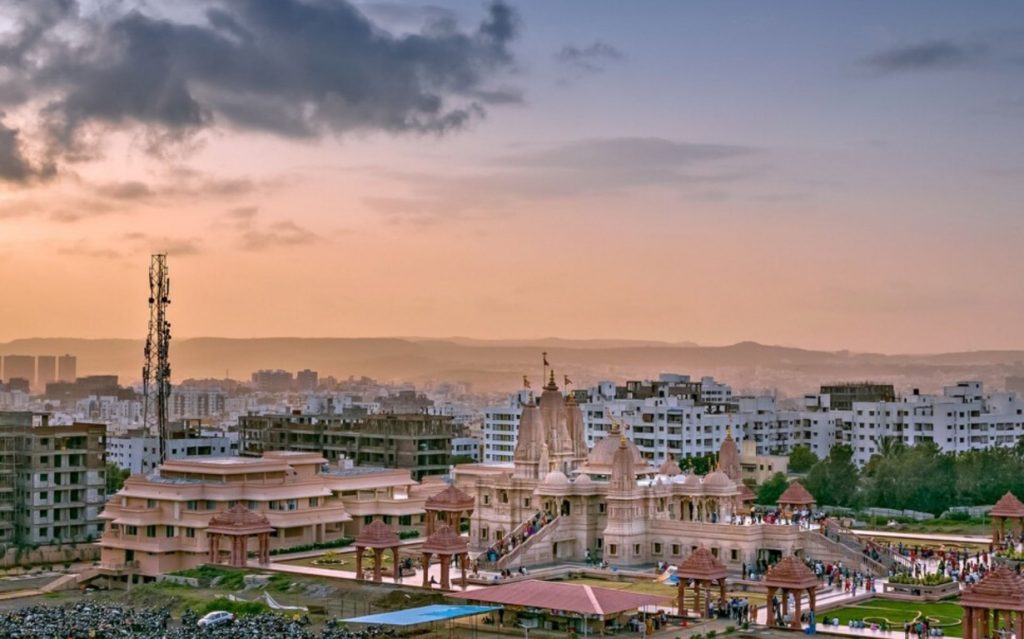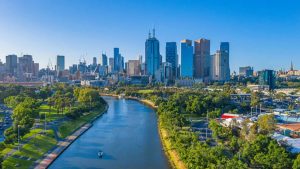
Revolutionizing Pune City: Through A Circular Economy
Informal workers remove enough plastic waste from Pune, India to account for nearly 50,000 tonnes of annual CO2 Emissions which is equivalent to the emissions from 10,423 passenger cars by burning 20,611,991 litres of petrol.
INTRODUCTION
The above statement is what makes India’s ninth-most populous city and the second-largest urban agglomeration in Maharashtra State, Pune, a unique role model for the other cities in the country.
It is one of the fastest-growing cities in the country. A tremendous increase rate of 7.8% was observed in its population during 2005-14.
The estimated daily waste generation in Pune is 2,000 tonnes (730,000 tonnes per year) and it is expected to grow exponentially with the substantial population increase and goods consumption.
Pune is rich in natural resources with 35% of its land area under green cover. But its severe ecological degradation is evident from the rapid urbanization, industrialization and poor environmental management practices.
The city encompasses an estimated market of $42 million for re-use products (fuel, fertiliser and water) by 2020-2021.
Pune is recognized as a city with a progressive waste management system.
THERE EXISTS NO CITY WITHOUT PROBLEMS, RIGHT?
Pune generates around 744 million litres per day of waste through sewage and 177 million litres per day out of it goes into the rivers without treatment.
Despite the adequate rainfall of 763 mm per year and overflowing dams, the city faces a water shortage crisis every summer due to inefficient administration, rising population and water leakages that arise due to the poor maintenance of the water supply pipes.
PMC (Pune Municipal Corporation) estimates 38000 illegal water connections, whose water is sold at higher prices. Also, the water crisis has compelled citizens to spend on tankers. The water tankers fill water from the PMC water stations and supply it to the citizens at an astronomical cost.
The solid waste generated by the city is dumped into the wastelands existing across the urban periphery. Landfills will be exhausted soon.
Pune produces around 215 to 235 tonnes of plastic waste per day which contributes to around 15% of the total solid waste generation in the city.
Despite the plastic ban introduced in 2018, the impact on the city was insignificant; showing only a 20% decrease in its use.
“Neither the society nor the PMC (Pune Municipal Corporation) has a proper segregation system,” says Lokesh Bapat from the Tellus Org.
ADMINISTRATIVE INITIATIVES
Resilience Strategy Initiative by the PMC
- Zero Waste Wards: Providing a facility for in-situ, 100% organic waste management with sufficient capacity in each ward, tackling waste transportation and accumulation problems.
- ‘StreamLine Pune’: Creating policies for stream rejuvenation and rehabilitation along with treatment of wastewater run-offs leading to blue-green infrastructure development.
- Optimizing recycling loops: Setting up local level recycling and processing units, and scrap wholesale markets to improve the recycling economy.
- ‘Green Jobs’: To set up a skill up-gradation and entrepreneurship support program for unskilled and semi-skilled labourers in the informal recycling economy.
- The IEC Strategy: To promote responsible waste management and the importance of a circular economy.
- Participatory Governance: Including citizens in solid waste management systems through the ward level committees, thereby improving robustness, transparency and accountability in the system.
COMMUNITY INITIATIVES
Pune’s Ultimate Weapon: The Waste Pickers
In 1993, the formation of Kagad Kach Patra Kashtakari Panchayat (KKPKP) by the Pune Waste Pickers took place.
SWaCH is India’s first cooperative owned by self-employed waste pickers. In 2008, SWaCH was authorized by the PMC to provide door-to-door waste collection and other allied waste management services for a period of five years.
The pioneering work of KKPKP and the SWaCH model’s sustainability resulted in the trade union being asked to represent informal waste pickers in the Government’s drafting committee for the Municipal Solid Waste Rules 2016.
SWaCH expands to cover 640,000 properties with some 3,000 waste-pickers.
Thus, 87.5% of Pune’s total municipal waste is collected, with informal workers, working under contract from the municipality.
CSR INTERVENTIONS
- Cummins India collaborated with the PMC to set up a zero-waste ward project at Kothrud. It has been launched jointly by Hon. PMC Commissioner, Mr. Sourabh Rao and Cummins Chief Financial Officer, Mr. Rajiv Batra on 15th August 2018.
- Mercedes-Benz India initiated the ‘Jal Yukta Shivar’ project which included construction and renovation of water conservation structures in 8 villages that facilitates groundwater recharge in drought-hit areas of Khed and Ambegaon subdivisions.
Earth5R Community initiatives
Earth5R is setting up an inspirational example by performing several impactful clean-up drives throughout the country.
The Mula-Mutha river clean-up initiative is a classic example of how the community inclusion can take place in the circular economy solutions for the plastic reduction in the environment.
Earth5R wisely collaborated with the Hexaware Technologies on the Coastal Cleanup Day 2016, where the volunteers implemented creative waste management and proved an inspiration to the slums on the other banks of the Mula-Mutha river.
WHAT IS CIRCULAR ECONOMY?
A circular economy is an economic system of closed loops in which raw materials, components and products do not lose much of their value, renewable energy sources are used and systems thinking is at the core.
HOW CAN IT SOLVE THE CITY’S PROBLEMS?
For using a circular economy to develop solutions, the systems thinking and environmental stewardship, which are its core concepts should be understood.
The dimensions of water as a service provider, energy source and a carrier are not independent but are connected with each other. Wastewater generated in Pune can be used to harness thermal energy.
A systems-based approach could be applied by the PMC to identify the potential circular economy initiatives and opportunities and also optimizing the water supply system at the same time.
For instance,
- The International Water Association (IWA) developed the 5Rs approach to circular water management – reduce, reuse, recycle, restore and recover – for companies to consider and adopt as common practice.
- European Union policy identifies the use of treated wastewater as one potential solution to water scarcity. Treated wastewater can also deliver significant environmental, social and economic benefits by ensuring a reliable water supply, independent of seasonal weather.
WHAT CAN THE CITIZENS DO?
The contribution of individuals in the implementation of the circular economy should be enhanced and making sustainable choices should be made easy and appealing.
For tackling recycling problems, effective collection and waste recovery systems allow citizens to engage personally by separating their waste at source and live in a healthy environment
Citizens could take old or broken products to become repaired, renewed or totally remanufactured instead of throwing them away as waste.
Promoting a circular economy at several levels with teaching and education should be initiated which thereby influences the decision making at the local and national levels. This ensures citizens’ involvement in the decision making process.
EARTH5R CIRCULAR ECONOMY APPROACH
Earth5R responsible for numerous Powai-cleanup campaigns involving educating the citizens about the importance of waste management and how procuring sustainability in the system can have positive environmental, social and economic impacts.
Along with the 5R strategy, it is very important to educate, teach and inform the people about sustainable practises and how inculcating them in their daily lives can provide them with innumerable benefits. Earth5R’s Awareness program in Pune was successful in imbibing this awareness into the people.
Earth5R has tackled the problems of the lack of awareness in the general public as well as slum communities in an innovative way. Conduction of Art workshop with recycling office waste and imparting environmental education to the slum community voluntarily are truly inspirational.
The unique thing about Earth5R’s drives is not only the inclusion of adults as volunteers but also children get an opportunity to perform their duty in sustainable practices. One such example is Earth5R’s waste management program in Pune where children participated to create garbage bins from waste cartons.
Surely, ‘Best out of waste’ was practised here.
ABOUT EARTH5R
Earth5R is an environmental organization from India with its head office at Mumbai. It works with the NGO sector, Companies and helps them conduct environmental corporate social responsibility (CSR) programs across India. Earth5R specializes in circular economy based projects. Earth5R also offers short term and long term environmental courses.
Earth5R’s Global Sustainability Hub is a cross-sector and cross-country collaboration in pursuit of UN Sustainable Development Goals. It is an excellent opportunity for governments and the private sector to engage with communities, use Sustainability-based models to drive economic changes and create social and environmental impact.
-Reported by Nihar Mahajan, edited by Riya Dani




